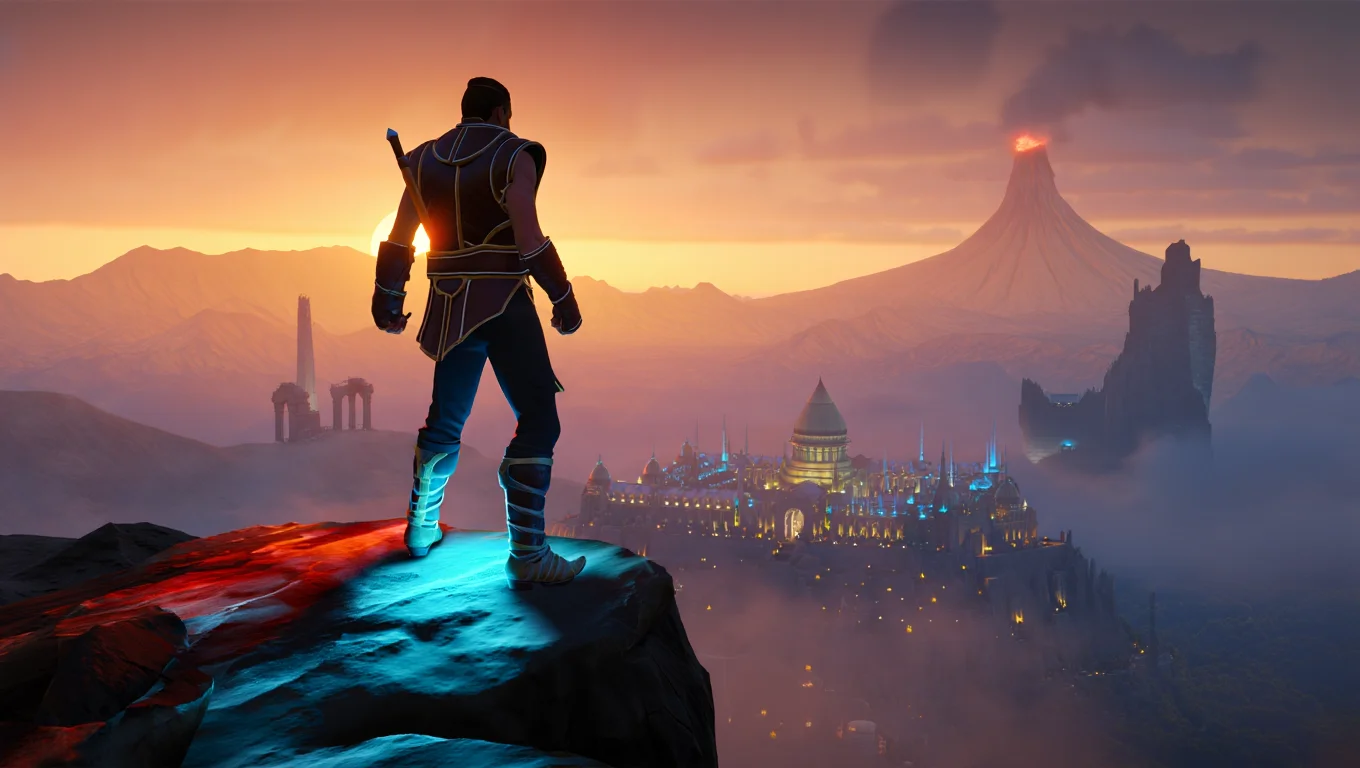When The Elder Scrolls IV: Oblivion Remastered shadow-dropped on April 22, 2025, it sent shockwaves through the gaming world. The long-rumored overhaul of Bethesda’s 2006 classic, rebuilt with Unreal Engine 5 by Virtuos and Bethesda Game Studios, wasn’t just a nostalgic revisit—it was a phenomenon. Within days, the game topped Steam’s best-seller list, drew over 4 million players, and peaked at 216,784 concurrent users on Steam alone. Its stunning visuals, modernized gameplay, and faithful preservation of Cyrodiil’s charm have redefined what a remaster can be, with some calling it “Oblivion 2.0.” But this triumph has raised the stakes for Bethesda. With fans clamoring for more and the studio facing a challenging decade, Bethesda may need to bring out its biggest guns—think Fallout 3 Remastered, Morrowind Remastered, or even a surprise Elder Scrolls VI reveal—to keep the momentum alive. Here’s why this moment is pivotal and what’s next for the RPG giant.

The success of Oblivion Remastered is no fluke. Launched with minimal hype after years of leaks, the game tapped into a deep well of nostalgia while delivering a visual and mechanical overhaul that feels cutting-edge. Every asset, from the Imperial City’s gleaming spires to the Shivering Isles’ surreal landscapes, was rebuilt from scratch. Ray-traced lighting bathes Cyrodiil in breathtaking realism, while gameplay tweaks—like a sprint mechanic, a hybrid leveling system blending Oblivion and Skyrim, and refined combat—make it accessible to newcomers and veterans alike. The inclusion of all DLCs, including Knights of the Nine and Shivering Isles, ensures a complete experience. At $50 (or free on Xbox Game Pass), it’s a steal, and the numbers prove it: over 600,000 viewers tuned into Bethesda’s reveal livestream, and social media exploded with praise for the remaster’s polish and charm.
This isn’t just a win for Bethesda—it’s a lifeline. The studio has faced turbulence in recent years. Fallout 76’s rocky launch in 2018 required years of damage control, while Starfield (2023) disappointed many with its fragmented exploration and lackluster narrative, failing to match the cultural impact of Skyrim or Fallout 4. Meanwhile, competitors like Larian Studios (Baldur’s Gate 3) and Obsidian (The Outer Worlds) have raised the bar for RPGs, leaving Bethesda’s once-unassailable reputation in question. Oblivion Remastered has restored faith, proving Bethesda can still deliver a world-class experience. But with The Elder Scrolls VI years away and Fallout 5 even further, the studio can’t rest on its laurels. Fans are hungry, and Bethesda must capitalize on this moment with bold moves.
The most obvious next step is a Fallout 3 Remastered. Leaked in 2023 alongside Oblivion in Microsoft’s FTC trial documents, Fallout 3 is a prime candidate for the remaster treatment. The 2008 post-apocalyptic RPG, set in a ravaged Washington, D.C., is beloved for its immersive world and moral dilemmas but criticized for clunky gunplay and dated visuals. A remaster could modernize shooting mechanics to align with Fallout 4’s smoother combat, as suggested by former Bethesda designer Bruce Nesmith. Enhanced graphics, improved NPC animations, and quality-of-life updates—like a streamlined V.A.T.S. system or updated HUD—would make the Capital Wasteland feel fresh. Timing is key: with Fallout Season 2 set to explore New Vegas in 2026, a Fallout 3 Remastered could ride the wave of renewed franchise hype, much like Fallout 4’s 7,500% sales surge in Europe during Season 1. A 2026 release would also align with the two-year gap originally outlined in Microsoft’s leaked roadmap, keeping Bethesda’s output steady.
Another heavy hitter could be a Morrowind Remastered. The Elder Scrolls III: Morrowind (2002) remains a cult favorite for its alien landscapes, deep lore, and unparalleled freedom, but its archaic mechanics and blocky visuals deter new players. A remaster could preserve its open-ended RPG DNA while adding modern touches: a sprint mechanic, refined combat inspired by Oblivion Remastered, and Unreal Engine 5 visuals to bring Vvardenfell’s ash storms and Dwemer ruins to life. The modding community’s Tamriel Rebuilt project, which expands Morrowind’s map, shows the demand for a revitalized version. A Morrowind remaster would appeal to hardcore fans and introduce a new generation to the game that put Bethesda on the map, bridging the gap until The Elder Scrolls VI.
Bethesda could also surprise fans with a Dishonored 3 or a new IP. Leaked in the same 2023 documents, Dishonored 3 would mark a return for Arkane Studios, whose Redfall (2023) faltered but whose Dishonored series remains a stealth masterpiece. A new chapter with enhanced visuals and expanded supernatural powers could rekindle excitement. Alternatively, Bethesda could unveil one of its codenamed projects—like Project Kestrel or Project Platinum—to show it’s not just leaning on remasters. A new IP, perhaps a Star Wars game given Bethesda’s success with Indiana Jones and the Great Circle (2024), would signal ambition and diversify its portfolio.
The biggest gun, of course, would be The Elder Scrolls VI. Announced in 2018, the game has been mired in silence, with fans growing restless after Skyrim’s 2011 release. Oblivion Remastered’s success—evidenced by 6.4 million Google searches and a 713% spike in interest—shows the Elder Scrolls brand’s enduring power. A teaser trailer, even without a release date, would keep fans engaged and signal Bethesda’s commitment to the series. However, with development focused on Starfield’s Shattered Space expansion and early Elder Scrolls VI work, a 2026 reveal seems optimistic. Still, a small gesture—like concept art or a lore snippet—could sustain hype.
Bethesda’s challenge is balancing nostalgia with innovation. Oblivion Remastered succeeds because it preserves the original’s soul—its janky charm, quirky NPCs, and open-world freedom—while modernizing pain points. But fans won’t settle for endless remasters. Skyrim, re-released across multiple platforms, has sold 60 million copies but risks oversaturation. Oblivion Remastered’s 125GB file size and Unreal Engine 5 polish set a new standard, but future projects must push boundaries. For Fallout 3, this means fixing combat and adding non-combat perks. For Morrowind, it’s about streamlining without losing depth. For new titles, it’s crafting worlds as immersive as Cyrodiil.
Community feedback also shapes Bethesda’s path. On platforms like Reddit, players praise Oblivion Remastered’s visuals but report bugs, like a Kvatch quest glitch or lost saves on Xbox. A recent hotfix caused PC graphics issues, prompting Bethesda to promise quick fixes. Fans also demand mod support, a staple of Bethesda games absent at launch. The studio’s pro-mod stance suggests official support is coming, especially for PC, where hundreds of mods already tweak animations and customization. Console players, however, feel left out, and Bethesda must address this to maintain goodwill. Listening to these cries, as Bethesda did via its Discord, will ensure future releases hit the mark.
The broader industry context adds urgency. RPGs are evolving, with Baldur’s Gate 3’s narrative depth and Elden Ring’s seamless open world setting new benchmarks. Bethesda’s long development cycles—four years between Morrowind and Oblivion, but over a decade since Skyrim—leave gaps that competitors fill. Remasters like Oblivion buy time, but fans crave new stories. The Skyblivion mod team, which recreates Oblivion in Skyrim’s engine, welcomed Bethesda’s remaster, proving fans will support both official and community efforts. Bethesda even gifted the team copies, a nod to its passionate base.
Financially, Oblivion Remastered is a goldmine. At $50, with a peak of 182,298 Steam players, it’s grossed millions, bolstered by Game Pass and sales on PS5 and Xbox. This success signals to Microsoft, which acquired Bethesda for $7.5 billion, that remasters are low-risk, high-reward. A Fallout 3 or Morrowind remaster could replicate this, funding riskier projects like The Elder Scrolls VI. But Bethesda must avoid complacency. Starfield’s smaller fanbase and Fallout 76’s struggles show that missteps are costly.
Ultimately, Oblivion Remastered is a turning point. It’s reminded fans why they fell in love with Bethesda—worlds that feel alive, stories that linger, and freedom to forge your path. To sustain this, Bethesda must wield its biggest guns: a Fallout 3 remaster to ride the Fallout TV wave, a Morrowind remaster to honor its roots, or a bold new IP to prove it’s still a trailblazer. The studio’s legacy hangs in the balance, and with Cyrodiil’s hills alive again, the world is watching.





